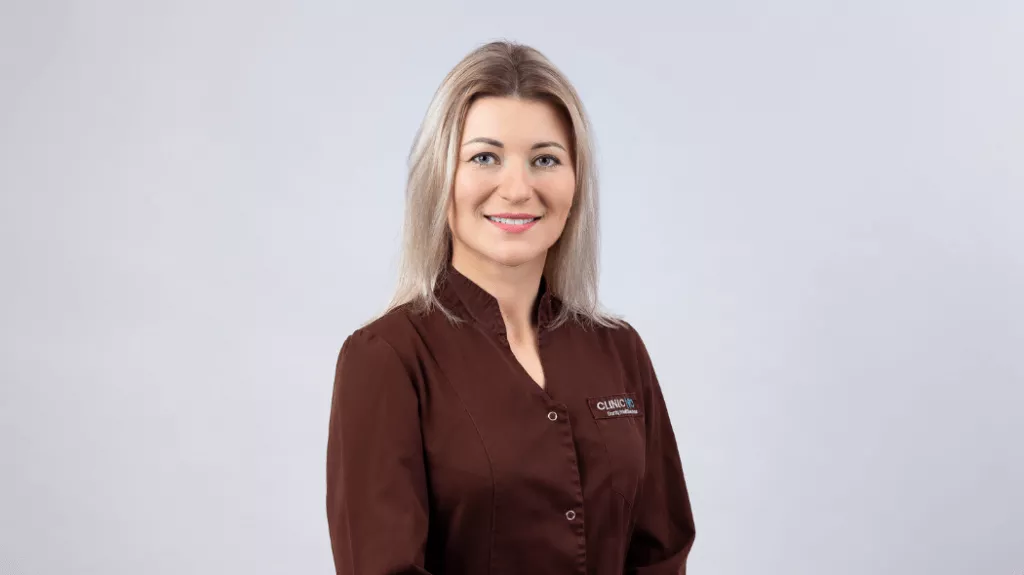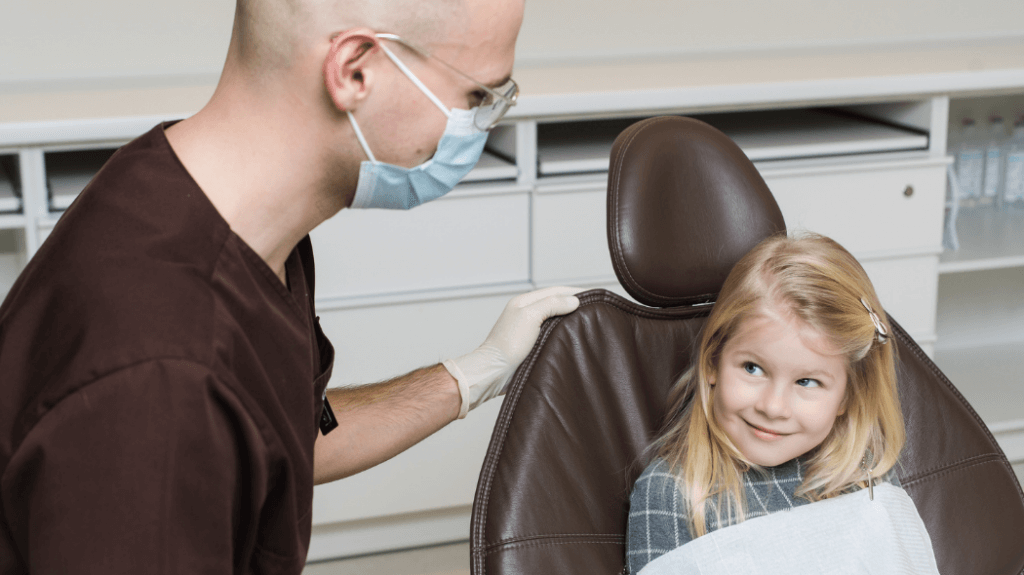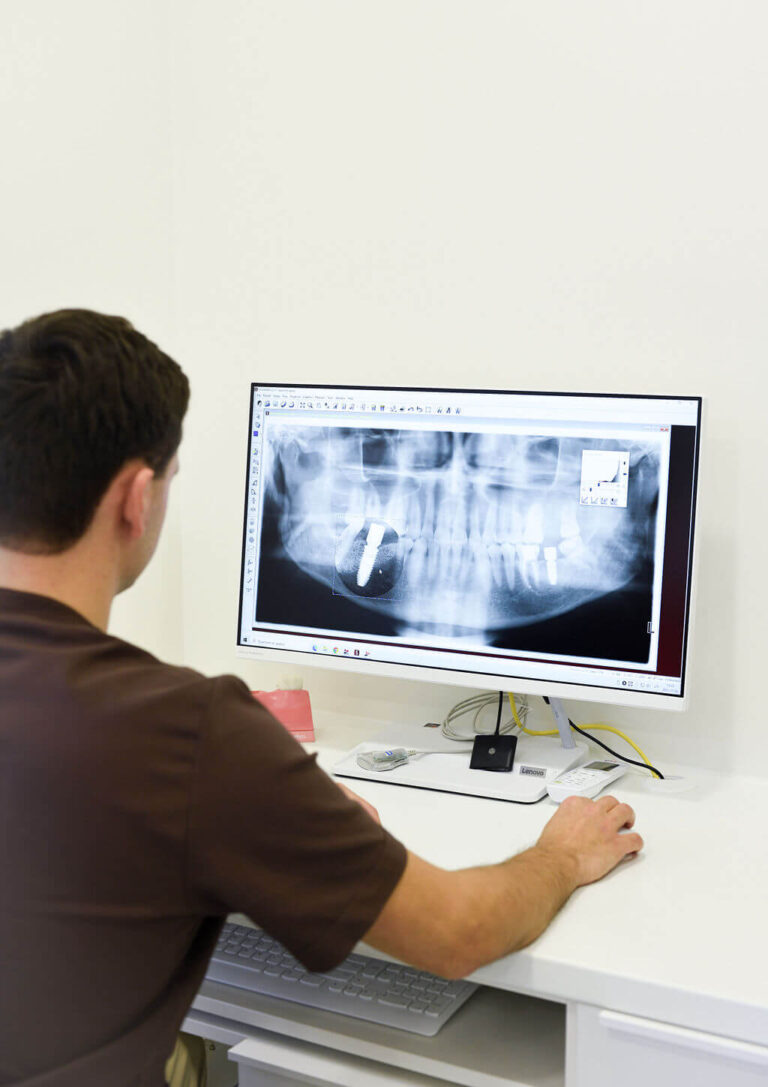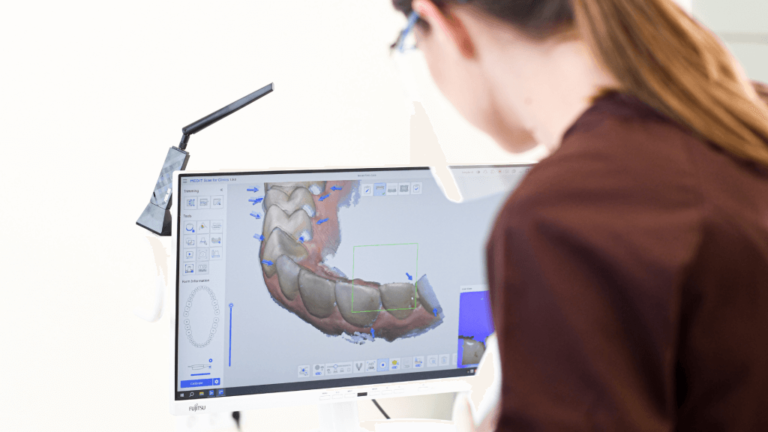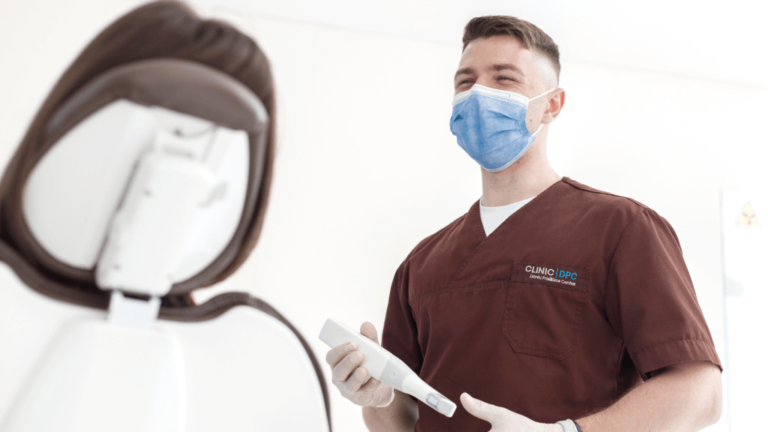You already know how to care for your child’s teeth. But that’s not all there is to know about oral hygiene and your child’s dental health. And it’s not uncommon for questions to arise as soon as the dentist’s office door is closed… or at home, just “out of the blue”. And since most questions about teeth are not a matter of urgency, you don’t want to call now… So we asked our readers, parents, what questions they have had recently about their children’s teeth. Diana Markauskienė, a dentist at CLINIC | DPC, the largest network of dental clinics in Lithuania, agreed to answer them.
A toddler has a fear of dentists. What to do?
The first thing to do is to find out why he is afraid of them. Panic fear cannot come out of nowhere. Maybe the child was frightened during the first visit to the dentist. Maybe it is not the dentists themselves that he is afraid of, but strangers and strange surroundings. Maybe he is afraid of pain. Maybe it is not the child who is afraid, but his parents who are afraid, and they are passing on their anxiety to him? For example, a child is brought to the dentist’s office by a fearful dad or mum who flinches at every move the dentist makes. Finding out the cause can also provide a solution to overcoming fear.
Fixing a child’s teeth. What should parents do – stay in the office or leave?
It depends on the child and the parents. For some children, a parent’s presence in the dentist’s office, a hand to hold, a word of encouragement from mum or dad helps, while for others, parents leave them alone in the office, thus developing their courage and independence. All are good ways to achieve the goal of healing teeth.
Which factors have the greatest influence on bite formation? Some say it’s hereditary, others urge people to give up the pacifier as soon as possible…
The formation of the bite is determined by both internal factors, i.e. genetics, and external factors, i.e. various harmful habits (thumb sucking, prolonged use of a soother, mouth breathing, premature extraction of milk teeth, irregular tongue positioning, etc).
Why do milk teeth sometimes darken?
Plaque can darken your teeth, but it can be easily removed. If you can’t clean them at home, you can have them cleaned with special products from an oral hygienist or dentist. Teeth also darken when they become damaged by decay. Treatment is then needed and a filling is placed. And sometimes this happens after an injury.
When do children’s teeth need fillings? Do they stop existing decay or prevent new decay?
It is recommended to cover only the ridges of recently erupted permanent molars and premolars with silanes to prevent food debris from getting trapped and causing decay. If the teeth have not been covered with silants and decay is already present, treatment is by filling.
From when can a child use an electric toothbrush?
There are several opinions on this issue. Some argue that electric toothbrushes were designed for people with disabilities and that healthy people should be able to brush their teeth by hand in a circular motion with a regular toothbrush. But on the other hand, if not everyone can clean their teeth perfectly with a regular toothbrush, why not use an electric one?
By the way, not all children like the vibration of an electric toothbrush. In my opinion, all cleaning methods are fine as long as the teeth stay clean afterwards.
Do children need professional dental hygiene?
If parents brush their children’s teeth responsibly, a four or five-year-old may not need to see an oral hygienist, but in adolescence, when
permanent teeth are coming in, professional oral hygiene is definitely recommended.
Does the care of milk teeth differ at different ages?
Only the types of brushes differ between ages. Mothers can take care of their baby’s first teeth by wrapping a piece of wet gauze around their finger and wiping milk plaque from the gums and teeth, both in the morning and the night before. Afterwards, they can be brushed with a special silicone toothbrush, with teething brushes that clean the teeth and massage the gums, or with a normal children’s toothbrush that is age appropriate. At all ages, teeth should be brushed in the morning and night. After brushing at bedtime, it is important to stop snacking and drinking (except water).
Medical treatments are certainly not the most enjoyable activity for children. They are often anxious and irritable. How do pediatric dentists manage to control the moods of young patients?
For us as dentists, every patient is a challenge in its own way: whether we will be able to make friends, find common ground and agree on future treatment. Games and funny stories usually help us achieve this. In rare cases, patients may undergo dental treatment under anesthesia.
What if a young child resists brushing his teeth and doesn’t like the procedure very much?
And if a child doesn’t want to take a bath or wash his head, is he allowed to be dirty? Scientists have recognised that the mouth is the dirtiest part of the human body, so special attention must be paid to cleaning teeth. Brushing them for 2 minutes is a must. – This is practice for a successful future visit to the dentist, because a child can stay awake for that long. When my own children refused to brush their teeth, I explained that tears at home when brushing with a toothbrush were better than screaming in the dentist’s chair when brushing with a drill. The right dental care habits guarantee a healthy smile into old age.

